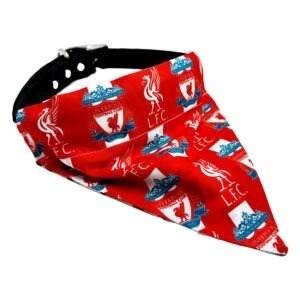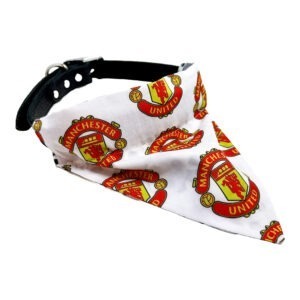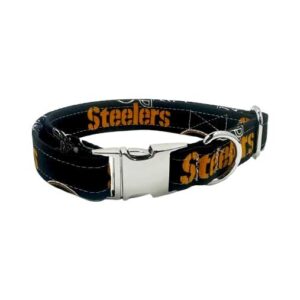The Bichon Frise, with its cheerful disposition, sparkling eyes, and cloud-like coat, is a joy to have around. This small breed dog is known for its sociability and playful nature, but these attributes also mean they require a balanced diet and regular exercise to maintain optimal health and happiness.
Bichon Frises, despite their compact size, have a robust metabolism and high energy levels. Providing a balanced diet not only supports their metabolism but also maintains their stunning white coat and overall health. Similarly, regular exercise is vital to prevent obesity, stimulate their mind, and cater to their social needs. In this article, we will delve into the best diet and exercise regime for your ビション・フリーゼ, considering their unique breed characteristics and typical health concerns.
Understanding the nutritional requirements of your Bichon Frise, providing an appropriate exercise regimen, and knowing how these needs change with age are integral parts of responsible pet ownership. Let’s begin by exploring the dietary needs of this charming and energetic breed.
Some of our latest products...
-
犬用バンダナ
Liverpool FC Dog Bandana
$ 13.19 – $ 16.12 米ドル オプションを選択 この商品には複数のバリエーションがあります。 オプションは商品ページから選択できます -
犬用バンダナ
Manchester City Dog Bandana
$ 13.19 – $ 16.12 米ドル オプションを選択 この商品には複数のバリエーションがあります。 オプションは商品ページから選択できます -
犬用バンダナ
Manchester United Dog Bandana
$ 13.19 – $ 16.12 米ドル オプションを選択 この商品には複数のバリエーションがあります。 オプションは商品ページから選択できます -
Understanding the Bichon Frise’s Dietary Needs
Just like us, our furry companions need a balanced diet to thrive. For Bichon Frises, this implies a combination of proteins, fats, carbohydrates, vitamins, and minerals, each contributing uniquely to their wellbeing.
Proteins are the building blocks of their body, crucial for tissue repair, muscle growth, and sustaining a robust immune system. For your Bichon Frise, high-quality animal protein sources like chicken, beef, or fish are ideal. These not only provide essential amino acids but are also palatable to most dogs, ensuring they enjoy their meals.
Fats, particularly omega-3 and omega-6 fatty acids, contribute to the health of your Bichon’s skin and coat. A diet rich in these fats can help maintain their distinctive white, fluffy coat’s lustrous appeal. Furthermore, fats are an important source of energy for these active little dogs.
Carbohydrates offer another source of energy. However, they should be complex carbs like sweet potatoes or brown rice, which provide sustained energy release, fiber, and various essential nutrients.
Vitamins and minerals support numerous body functions and are critical for bone health, blood coagulation, and metabolic regulation. Fresh fruits, vegetables, and quality dog foods usually supply these in abundance.
Some Bichon Frise owners may consider a raw food diet, often lauded for its ‘naturalness’ and potential health benefits, like shinier coats, healthier skin, and improved dental health. However, raw diets require careful planning to ensure balanced nutrition and to avoid bacterial contamination. If you’re considering this route, it’s wise to consult with a vet or pet nutrition expert first.
Understanding these dietary needs forms the foundation for feeding your Bichon Frise a nutritious and balanced diet that supports their overall health. In the next section, we will delve deeper into the feeding process, including portion sizes, feeding frequency, and tips to prevent overfeeding.
Feeding Your Bichon Frise
The quantity of food your Bichon Frise requires varies according to their age, weight, activity level, and overall health. While pet food packaging often includes feeding guidelines, it’s crucial to tailor these to your dog’s specific needs. Consulting with your vet is always a great first step to establish an accurate feeding regimen.
Generally, an adult Bichon Frise typically needs around 40 calories per pound of body weight each day, which should be divided into two meals. Puppies, due to their rapid growth and energy demands, often need a higher calorie intake. They should be fed smaller meals more frequently – typically three to four times a day – to maintain consistent blood sugar levels and aid their growth and development.
Preventing overfeeding and obesity is essential as Bichons can quickly gain weight, which can lead to various health issues, including diabetes, heart disease, and joint problems. Monitor your dog’s body condition regularly, adjusting their food intake and exercise regimen as necessary. If your Bichon’s waist is not easily visible, and you can’t feel their ribs with a light touch, they may be overweight, indicating a need to cut back on their food intake and increase their physical activity.
One strategy to prevent overfeeding is using a measuring cup to provide the exact quantity of food required. Avoid the temptation to offer table scraps or excessive treats, which can unbalance their diet and lead to weight gain.
Remember, the goal of feeding your Bichon Frise isn’t merely to fill their belly but to provide a balanced diet that meets their nutritional needs and supports optimal health. A key aspect of this is ensuring your Bichon Frise’s diet is suitable for their unique health requirements, a topic we’ll discuss in the next section.
Dietary Considerations for Bichon Frise Health Issues
Bichon Frises are generally healthy dogs, but like all breeds, they can be prone to certain health issues that can be influenced by diet. Notably, Bichon Frises often deal with allergies and bladder issues.
Allergies in Bichon Frises can manifest in different ways – skin irritation, ear infections, or gastrointestinal upset. If your Bichon Frise suffers from allergies, your first step should be to identify the allergen. It could be a specific ingredient in their food, such as chicken, beef, dairy, or wheat. Once identified, you can choose a hypoallergenic diet that omits these ingredients. Some Bichon Frises do well on limited ingredient diets or grain-free diets, but it’s essential to discuss these options with your vet to ensure they’re getting a balanced diet.
Bichon Frises are also prone to bladder problems, including bladder stones. A diet that maintains a neutral to slightly acidic urine pH can help prevent stone formation. Special therapeutic diets, often available by prescription, can manage this condition. Increasing water intake by feeding wet food or adding water to dry kibble can also help dilute the urine and reduce the risk of stone formation.
It’s essential to work closely with your veterinarian to diagnose these conditions and choose the appropriate diet. Your vet may recommend a particular type of food or may guide you towards specific ingredients to look for or avoid.
Always monitor your Bichon Frise’s response to a new diet. If you notice any adverse reactions, such as vomiting, diarrhea, or worsening of allergy symptoms, consult your vet immediately. Remember, every Bichon Frise is unique, and what works well for one dog may not be the best choice for another. Your goal should always be to find a diet that keeps your Bichon Frise healthy, energetic, and happy.
Exercise Needs of a Bichon Frise
Despite their small size, Bichon Frises have a good amount of energy and require regular exercise to maintain their physical health and mental well-being. While they don’t need as much exercise as larger, more energetic breeds, the right amount of physical activity can keep your Bichon Frise healthy and prevent behavioral issues related to boredom or pent-up energy.
On average, a Bichon Frise should get at least 30 to 60 minutes of exercise per day. This can be divided into two or more shorter sessions. Regular walks are ideal, but keep in mind that Bichons enjoy exploring and sniffing, so be patient with them on your strolls.
In addition to walks, Bichons also enjoy playtime. Games of fetch in a fenced yard or indoor space can help to burn off energy. Keep in mind, however, that Bichons may not have the same endurance as larger breeds, so always monitor your dog’s energy levels during play and don’t force them to continue if they seem tired.
Bichon Frises, being highly intelligent, also benefit from mental stimulation. Brain games such as puzzle toys or hide-and-seek with treats can be a great way to engage their minds and provide some light physical activity.
Remember that while physical exercise is important, overexertion can cause health issues, especially in hot weather. Bichon Frises are susceptible to heat exhaustion and should never be exercised strenuously in high temperatures. Always provide plenty of fresh water during and after exercise.
Regular exercise will keep your Bichon Frise fit, stave off obesity, and can even help prevent some of the common health problems in the breed. Plus, exercise provides an excellent opportunity for bonding between you and your pet. By understanding and accommodating your Bichon Frise’s exercise needs, you’ll contribute greatly to their overall health and happiness.
Exercise Ideas for Your Bichon Frise
The Bichon Frise is a sociable, playful breed that thrives on interaction and mental stimulation. While daily walks are essential, these dogs also enjoy a variety of other activities that can make their exercise routine more engaging. Here are some fun and effective ways to ensure your Bichon Frise gets the physical activity and mental stimulation they need:
- Interactive Games: Bichon Frises love to play, and games like fetch, tug-of-war, or hide-and-seek with toys can provide both physical exercise and mental stimulation. These activities also strengthen your bond with your pet.
- Dog Sports: The intelligence and agility of Bichon Frises make them excellent candidates for dog sports like agility, obedience, or rally. These activities can provide high levels of both physical and mental exercise and can be a fun way for you and your dog to work together.
- Swimming: While not all Bichon Frises love water, those that do can get a great workout from swimming. Always supervise your pet around water and consider using a doggy life jacket for safety.
- Indoor Exercise: On days when outdoor exercise isn’t possible, keep your Bichon Frise active indoors with toys or a game of hide-and-seek. Training sessions can also serve as a form of exercise, keeping your dog’s mind active.
- Puzzle Toys: These are toys that dispense treats or kibble when your dog interacts with them. They’re a great way to keep your Bichon Frise engaged and mentally stimulated, and they can also help slow down eating in dogs that tend to gulp their food.
Remember, the goal is to keep exercise fun and engaging for your Bichon Frise. Pay attention to what activities they seem to enjoy most and incorporate those into their routine. As always, be mindful of your dog’s physical limitations and never push them to exercise if they’re uncomfortable or in pain. Regular exercise tailored to your Bichon Frise’s preferences and abilities can contribute to a happier, healthier life for your pet.
Age and Life Stage Considerations
Like all dogs, the dietary and exercise needs of a Bichon Frise change as they move through different life stages. Adjusting diet and exercise to accommodate these changes is crucial to ensuring your Bichon Frise remains healthy and content throughout their life.
Puppyhood: Bichon Frise puppies are bundles of energy and need a diet rich in protein to support their rapid growth and development. Feed them specially formulated puppy food three to four times a day. For exercise, short, frequent bouts of play interspersed with rest periods are best. Too much strenuous activity at this stage can harm their developing joints.
Adulthood: An adult Bichon Frise has matured out of its rapid growth phase and requires a balanced diet with protein, carbohydrates, and healthy fats. Feeding can be reduced to twice a day. In terms of exercise, a combination of walks, play, and training exercises should suffice. Ensure they get at least 30 minutes of exercise daily.
Senior Years: As your Bichon Frise reaches senior years, they may slow down, and their metabolism may decrease. Their diet might need to be adjusted to lower calorie, senior-specific food to prevent weight gain. Always consult your vet before making changes. Lower-impact exercises like leisurely walks or short play sessions are more suitable for older Bichon Frises. Regular, gentle exercise helps maintain muscle tone and joint flexibility, which can be particularly important for seniors.
Remember that these are general guidelines, and each Bichon Frise is unique. Your dog may require different amounts of food or types of exercise based on their individual metabolism, health status, and lifestyle. Regular vet check-ups are essential to monitor your Bichon Frise’s health and make necessary adjustments to their diet and exercise regime. By understanding your Bichon Frise’s changing needs at each life stage, you can help ensure that they lead a healthy, happy life.
結論
The Bichon Frise, with its friendly nature and captivating charm, is a breed that brings so much joy and companionship. As pet owners, it’s our responsibility to ensure they lead healthy and fulfilling lives. The significance of a balanced diet and regular exercise for a Bichon Frise’s health and wellbeing cannot be overstated.
Through understanding their specific dietary needs, including the importance of high-quality ingredients and age-appropriate food, you can provide optimal nutrition to maintain their overall health. Remember, each Bichon Frise is unique and may have different preferences or dietary restrictions.
Similarly, incorporating regular exercise into their routine is not just vital for their physical health but also their mental wellbeing. Whether it’s walks, games, or agility training, keeping exercises fun and engaging can help ensure your Bichon Frise stays active and content.
Furthermore, remember that as your Bichon Frise ages, their dietary and exercise needs will change. Regular vet check-ups are crucial to monitor their health and make necessary adjustments.
Owning a Bichon Frise is a rewarding experience. By investing time and effort into understanding and implementing the best diet and exercise routine for them, you can enhance their quality of life, and in turn, they will reward you with their unwavering love and loyalty. Here’s to many happy, healthy years with your Bichon Frise!
参考文献
- American Kennel Club. (2022). Bichon Frise Dog Breed Information. Retrieved from https://www.akc.org/dog-breeds/bichon-frise/
- Bichon Frise Club of America. (2022). Bichon Frise Health. Retrieved from https://bichon.org/health/
- Larson, K. (2021). The Bichon Frise: An Owner’s Guide To A Happy Healthy Pet. Howell Book House.
- Peterson, M.E. (2020). Nutritional Requirements and Related Diseases in Small Animals. In: Merck Veterinary Manual. Merck & Co., Inc.
- Zoran, D.L. (2002). The carnivore connection to nutrition in cats. Journal of the American Veterinary Medical Association, 221(11), 1559-1567. DOI: 10.2460/javma.2002.221.1559.
- Diverio, S., Boccini, B., Menchetti, L., & Bennett, P.C. (2017). The Italian perception of the ideal companion dog. Journal of Veterinary Behavior, 19, 33-42. DOI: 10.1016/j.jveb.2017.02.004.
- Schlesinger, D.P., & Joffe, D.J. (2011). Raw food diets in companion animals: A critical review. The Canadian Veterinary Journal, 52(1), 50-54.
- Axelsson, E., Ratnakumar, A., Arendt, M.L., Maqbool, K., Webster, M.T., Perloski, M., Liberg, O., Arnemo, J.M., Hedhammar, Å., & Lindblad-Toh, K. (2013). The genomic signature of dog domestication reveals adaptation to a starch-rich diet. Nature, 495(7441), 360-364. DOI: 10.1038/nature11837.
- Serpell, J.A., & Hsu, Y. (2005). Effects of breed, sex, and neuter status on trainability in dogs. Anthrozoös, 18(3), 196-207. DOI: 10.2752/089279305785594135.
よくある質問
What kind of diet is best for my Bichon Frise?
The best diet for your Bichon Frise depends on its age, weight, activity level, and overall health. Generally, they need a balanced diet that’s high in protein and fiber, with moderate fats and controlled carbohydrates. Some Bichons may benefit from a grain-free or hypoallergenic diet if they have food sensitivities or allergies.
How much exercise does my Bichon Frise need?
Bichon Frises are moderately active dogs that need at least 30 minutes to an hour of exercise daily. This can include walks, playtime, or other forms of physical activity. Remember, mental stimulation is also crucial for this intelligent breed.
How can I tell if my Bichon Frise is overweight?
A healthy Bichon Frise should have a noticeable waist when viewed from above and a tuck-up from the side. If you cannot easily feel your dog’s ribs under a light layer of fat, it might be overweight. A veterinarian can provide the most accurate assessment.
What common health issues should I be aware of in a Bichon Frise?
Bichon Frises are prone to certain health issues, including allergies, bladder infections, and dental disease. Regular vet check-ups can help catch any potential problems early.
Can a Bichon Frise adapt to my busy lifestyle?
Bichon Frises are adaptable dogs, but they thrive on companionship and do not like to be left alone for extended periods. If you have a busy lifestyle, ensuring your Bichon gets enough exercise and mental stimulation, even if it’s through a dog walker or daycare, is vital for their wellbeing.





